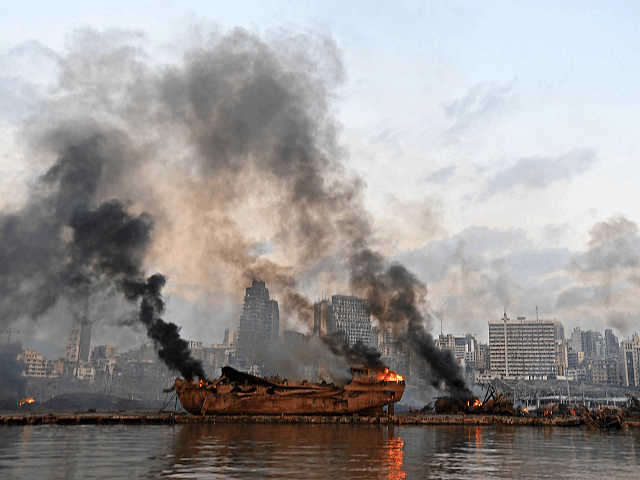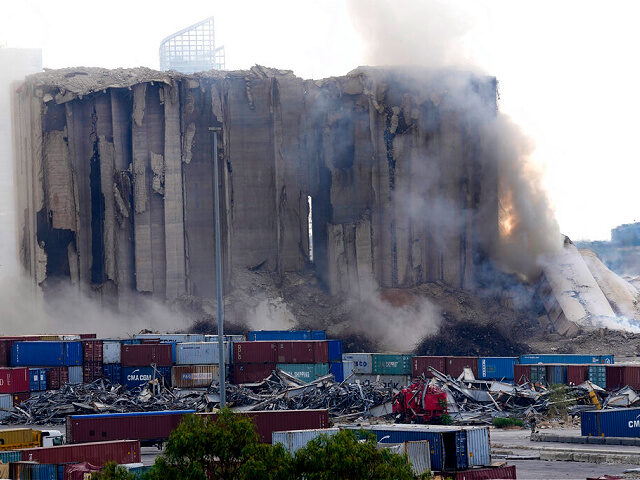A section of Beirut’s grain silos collapsed on Thursday, the same day that Lebanon marked the second anniversary of a deadly explosion at the Port of Beirut that devastated the city and damaged the very same grain silos, the National, a U.A.E.-based newspaper, reported.
“A block of silos damaged in the Beirut port blast collapsed on Thursday,” the National reported on August 4.
“The collapse happened as people were gathering nearby to mark the blast anniversary,” according to the newspaper.
A haphazardly stored cargo of ammonium nitrate, commonly used in fertilizer, ignited on August 4, 2020, at the Port of Beirut, causing massive combustion. Beirut’s nearby grain silos received much of the explosion’s impact and helped to shield the city’s western region from the blast.
The grain silos sustained significant damage during the incident and were thus in a weakened state when a fire broke out at the facility around July 8 due to high summer temperatures. The blaze expanded “after flames reached nearby electrical cables,” according to Lebanon’s government. The fire persisted through July 31, when “two towers fell in the heavily damaged silos’ northern section,” Agence France-Presse reported. This same fire was reportedly going strong at Beirut’s grain silo facility on August 4 when it caused an additional section of the stores to collapse.

A ship in flames is pictured at the port of Beirut following a massive explosion that hit the heart of the Lebanese capital on August 4, 2020. (Photo by -/AFP via Getty Images)
“The northern block of the silos, consisting of four towers, had been slowly tilting for days before it collapsed, causing a huge cloud of dust,” the Associated Press (AP) reported, noting that Thursday’s collapse affected roughly 25 percent of the grain storage site.
“Authorities had evacuated parts of the port earlier this week — after an initial section of the silos collapsed on Sunday [July 31] — as a precautionary measure and there was no indication that anyone was hurt,” according to the AP.
The Port of Beirut explosion on August 4, 2020, killed nearly 220 people and wounded more than 6,000 others. The blast obliterated wide swathes of Beirut, an ancient Mediterranean port city and the national capital of Lebanon, resulting in billions of dollars worth of damages. Lebanon had struggled economically immediately prior to the explosion and thus was poorly equipped to weather the disaster. The combustion ruined much of Beirut’s food supply when it blasted the city’s grain silos, compromising tons of corn and wheat that Lebanon could not afford to replace.
Lebanon’s government has led an official probe into the incident’s root cause, though the investigation has repeatedly stalled over the past 24 months.
“Lebanese government officials — including President Michel Aoun and then-Prime Minister Hassan Diab — had previous knowledge of the explosive material stored unsafely in the port, but failed to do anything about it,” the National reported on June 16.
The newspaper referred to the Port of Beirut’s negligently stored ammonium nitrate, which reportedly sat at the port for years.
“[M]ultiple Lebanese authorities were, at a minimum, criminally negligent under Lebanese law in their handling of the cargo, creating an unreasonable risk to life,” Human Rights Watch determined in August 2021 citing evidence available at the time.

COMMENTS
Please let us know if you're having issues with commenting.